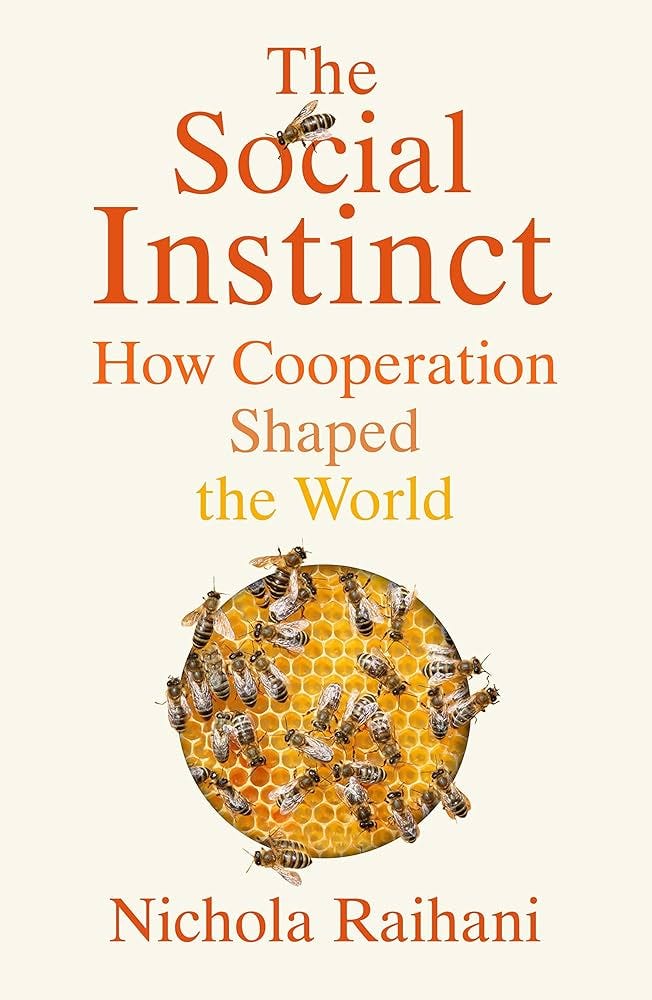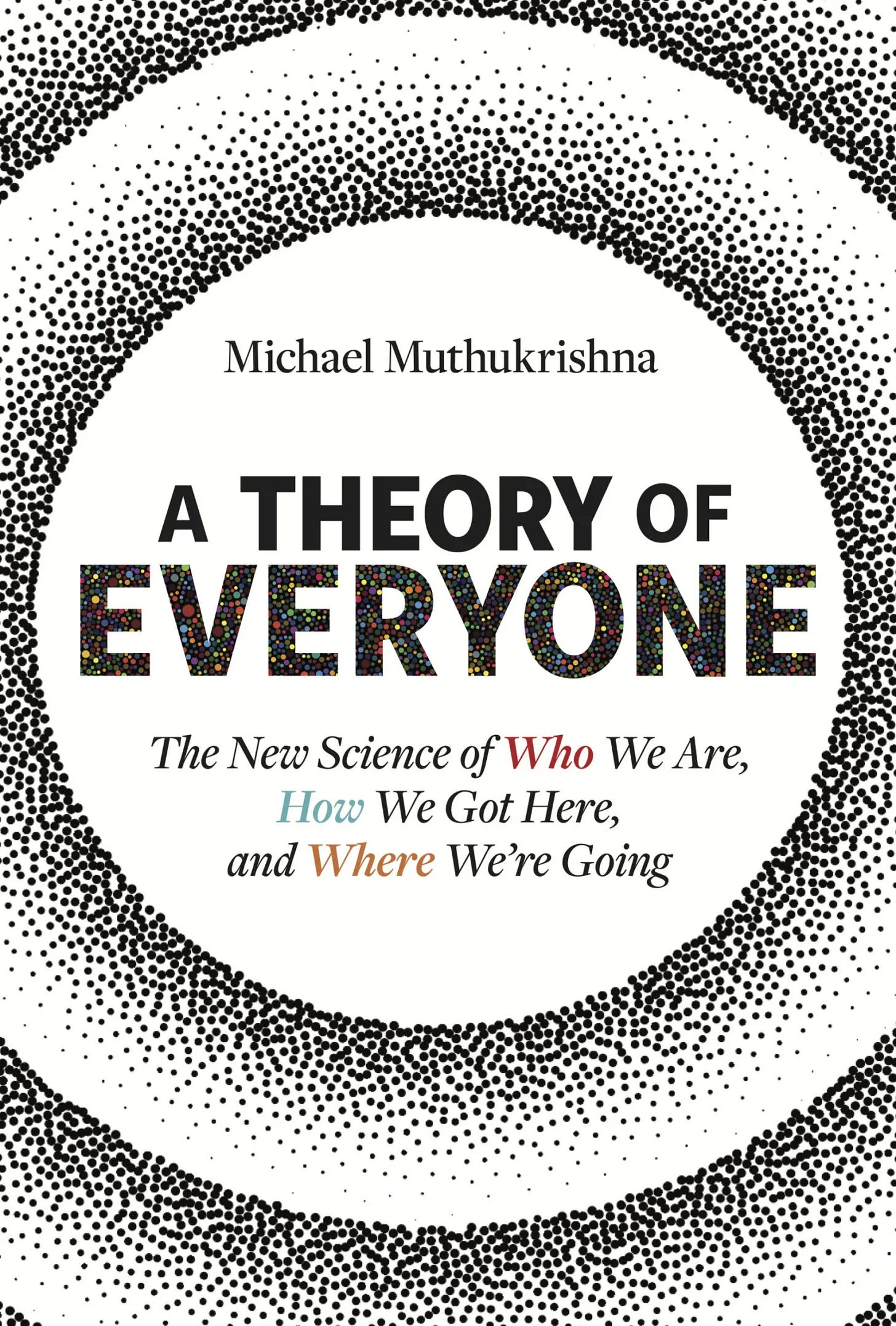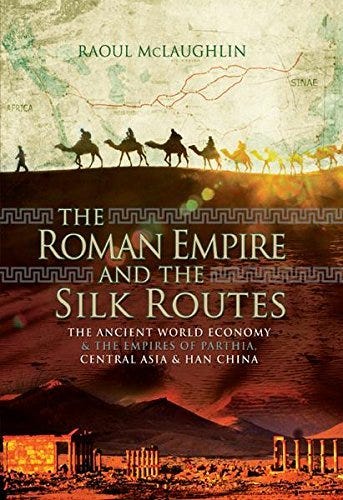End of the year book recommendations
Insightful books for potential gifts
As the end of the year approaches, you may find yourself in a quandary about what to give to some people you like and would like to surprise with something good. If you are looking for books, here is a list of recommendations of excellent sciencey books.
Fascinating life stories of scientists
Here are two recent books on the stories of incredibly influential scientists and intellectuals. The first one, The Man from the Future by Ananyo Bhattacharya is a captivating retelling of the biography of John von Neumann, one of the most influential scientists of the 20th century. A mathematical prodigy, von Neumann contributed to fundamental mathematics (proposing an answer to Russell’s paradox), to quantum theory (working on the mathematical foundations of wave functions), to the atomic bomb (solving a key aspect of its design as part of the Manhattan Project), to economics (developing the foundational concepts of game theory), and to computer science (formulating the architectural principles of modern computers). The book offers an engaging perspective on his life with an overview of his contributions explained in a non-technical manner.
The second book, The Murder of Prof Schlick by David Edmondsis a fascinating recollection of the story of the Vienna Circle. Edmonds excels at describing the outstanding intellectual effervescence in Vienna at the start of the 20th century. At that time, Vienna was on par with Paris as a cultural and political centre in Europe. In the 1920s, several intellectuals gathered to form what would become the Vienna Circle with Moritz Schlick as its chairman. This group hosted an amazing plethora of brilliant minds: philosophers Rudolf Carnap, Herbert Feigl, Kurt Gödel, Karl Menger, Richard von Mises, Otto Neurath, with Karl Popper, and Ludwig Wittgenstein in the outer circle. From the Circle emerged a new philosophical approach, logical positivism, which aimed to eliminate nonsense from science and base it on solid empirical foundations. This philosophy has been hugely influential in the 20th century, especially in economics, where it motivated the shift away from psychology towards a formal approach based only on (empirically observable) choices. Edmonds' book covers both the intellectual aspects of the group’s discussions and the human side, until its progressive disintegration with the advance of Nazism in Austria.
Our amazing brain
The brain, often cited as the most complex entity in the universe, makes neuroscience a potentially daunting subject. However, there are books that manage to be both engaging and enlightening in this field. The Idea of the Brain by Matthew Cobb is one such book. It delves into the historical study and conceptualization of the brain in science. Cobb explores how humans have used analogies and metaphors to grasp intuitions about the brain's inner workings. He illustrates the evolution of these metaphors, from viewing the brain as a telegraph system in the past to seeing it as a biological computer in modern times. These shifting metaphors have significantly influenced our understanding and 'perception' of the brain. Cobb's book is not only enjoyable but also provides deep insights into the brain's study.
The second book, The Spike by Mark Humphries, adopts a unique approach to elucidate the complexity of the brain. It begins with a spike initiated by photons hitting our retina when we see the last cookie in a box. Will we take it? The answer depends on the path this spike takes through the brain and the networks it activates. Through this captivating narrative, Humphries delves into the intricacies of our brain's inner workings. He explains how our brain processes information and makes decisions, bringing the reader to a current understanding of these complex processes.
Books with “Optimally Irrational” flavour
The book Algorithms to Live By is an amazing work that illustrates how many real-world problems—such as looking for a place to park your car, deciding whether to try a new dish at your usual restaurant, or choosing whether to start your day answering emails or working on an arduous report—have been analysed and solved by mathematicians and computer scientists. The book goes further, suggesting that our brains often approximate the optimal solutions that these experts have identified. It is a very enlightening read that bridges complex algorithms with everyday decision-making.
In Hidden Games, Moshe Hoffman and Erez Yoeli explore how game theory principles illuminate various surprising aspects of human behaviour. Game theory is the grammar of social interactions. Once understood beyond the simple problems of introductory courses, it offers profound insights into many curious societal phenomena. The authors make these concepts accessible and engaging, ensuring the book is not overly technical.
I wrote Optimally Irrational as the kind of book on human psychology I always wanted to read. Its main theme is that human intelligence is not as flawed as often portrayed; indeed, eons of evolution have equipped us with highly effective cognitive abilities for decision-making. The book re-examines evidence of seemingly puzzling or irrational behaviour, revealing that there are often very sound reasons behind these actions. In recent decades, behavioural scientists have frequently labelled such actions as “biases”. However, this book challenges that perspective, suggesting that individuals might be more attuned to the nuances of the problems they face than previously thought. “Optimally Irrational” is written in an accessible, non-technical style, while unpacking substantial content from economic theory, biology, and psychology.
How cooperation shapes the world from cells to societies
Darwinian evolution is often mistakenly perceived as advocating for the predominance of raw selfishness. However, this is a misconception. Game theory has shown that the potential benefits of cooperation in interactions with others can be large. At every level of life—from cells to individual organisms, small groups, and large societies—nature has embraced this principle. In The Social Instinct, Nichola Raihani unpacks how cooperation explains so much of how life is organised. The book provides a compelling exploration of the extensive role of cooperative behaviour in the natural world and provides new insights on human interactions.
A book for the modern enlightened citizen
In his 1998 book Consilience: the Unity of Knowledge, biologist E.O. Wilson encouraged scientists to integrate our scientific understanding from the natural to social sciences. Unfortunately, it is rare to see such an interdisciplinary approach in practice. Scientific disciplines often operate in silos, with researchers focused on developing a narrow understanding of the world from their specific perspective. The challenge of understanding and integrating insights from other scientific disciplines, let alone forming a single, coherent perspective, is daunting. This is compounded by the short-term 'publish or perish' incentives prevalent in academia.
Against this backdrop, Michael Muthukrishna’s book A Theory of Everyone stands out for its ambitious and well-informed discussion of the fundamental principles underlying our humanity, our origins, and our potential futures. Bridging concepts from fundamental physics to cultural evolution, Muthukrishna's engaging narrative lifts the veil on many life mysteries. These mysteries suddenly make sense when viewed against the broad, consistent canvas of our scientific understanding of natural and social mechanisms. The book also delves into how these insights should inform policy discussions, aiming to improve social institutions beyond the currently popular ideas.
The untold long history of humanity
It is easy to overlook the fact that our ancestors have been on this planet for a very, very long time, often leaving us with only a faint understanding of their lives. Here are two outstanding books that fill this gap. The first, A Story of Us by cultural evolutionary psychologists Lesley Newson and Peter Richerson, recounts the long history of our ancestors, starting with pre-human apes. The book is uniquely structured, half consisting of fictional stories that immerse you in the lives of these ancestors—complete with their beliefs, worries, desires—in various scenarios, and half offering explanations on why these scenarios are credible, given our current knowledge of the past. This approach makes it a very engaging way to connect with the long history of humanity.
Second, Who We Are and How We Got Here by geneticist David Reich delves into the recent advances in understanding of humanity’s history through the analysis of ancient DNA from the bones of ancestors who died several thousand years ago. This book unveils migration stories that often significantly diverge from the popular history portrayed in textbooks until recently. The revelations provided are eye-opening, offering new perspectives on the complex tapestry of human ancestry. The ongoing study of ancient DNA is reshaping our understanding of human history.
For those who like to think about the Roman Empire
If you know somebody who thinks frequently about the Roman Empire, The Roman Empire and the Silk Routes by Raoul McLaughlin is one of the best possible books for a gift.
McLaughlin recounts the history of Rome's economic interactions with Asia, particularly focusing on the emergence of the silk routes with Han China. The book stands out for several reasons. It offers page-turning insights into the economies of Rome, China, and Central Asian countries, diverging from the typical focus on military conquests and political intrigues in most Roman histories. I found the exploration of how conspicuous consumption in Rome—such as flaunting expensive clothes and goods—was a primary economic driver for the silk routes particularly intriguing. Similarly, the book vividly describes the daring journeys of merchants and adventurers leaving China for unknown lands, traversing harsh environments like the Taklamakan Desert in the Tarim Basin, in hopes of making fortunes. These journeys eventually forged connections with Central Asia and then the Roman Empire. The awe-inspiring stories narrated in this book could easily inspire great movies.
That’s it for this year’s recommendations on Optimally Irrational! If you particularly enjoyed some sciencey books, you can also recommend them in the comments.
This is an interim post. In the next post, we will return to addressing the question of how to improve our discussions, particularly in light of our tendency to entertain incorrect beliefs, following the last post.









Half the books mentioned are books I loved, the other are books I haven't read. Suggests I should read the second half, too then :)
People who like "The Murder of Professor Schlick" tend to also like "Exact Thinking in Demented Times" - very much recommend it, if you haven't read it. Douglas Hofstadter wrote the introduction and toured with the author, Karl Sigmund, upon its publication. One of the under 10 books I have read over 5 times.
And given your other topics of interests like rationality and Tom Griffiths book mentioned here, you might like "What Makes Us Smart" By Gershman (who you also cite in your book).
Thanks for the recommendations Lionel :) I just finished 'How to Expect the Unexpected' by Kit Yates and it's probably one of the most fun read i had in a while. Kit is remarkable at explaining counterintuitive phenomena in a very intuitive way.